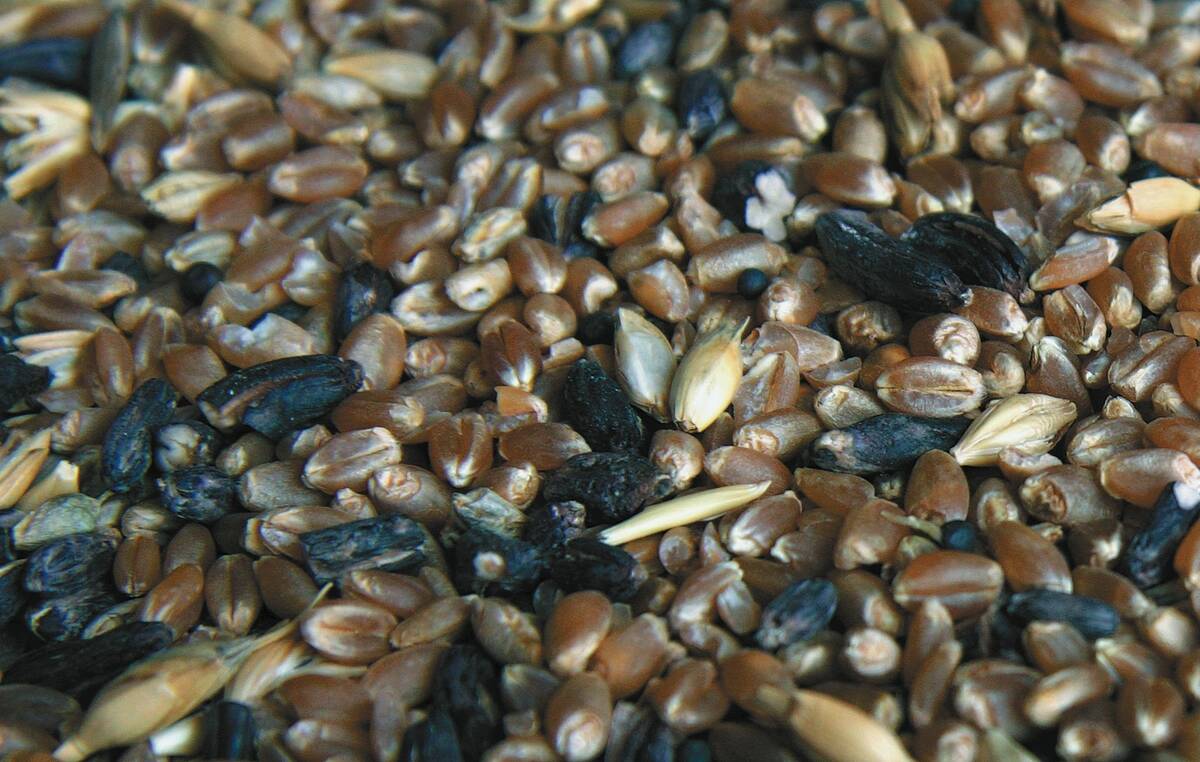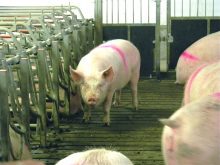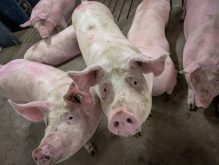Canadian hog producers will soon be able to immunize male pigs against boar taint as an alternative to castration.
Pfizer Animal Health has received regulatory approval to launch Improvest, a product that has been available in other pork-producing countries for more than a decade.
Improvest is a protein that uses the pig’s own immune system to temporarily interrupt testicular function, the company says in a release.
“Improvest provides the same effect as physical castration but much later in the pig’s life and the effect is temporary, not permanent. This allows animals to grow with all the advantages of intact males until the second dose,” the release says.
Read Also

Feeding ergot: research on ergot-impacted grain and beef cattle continues
Saskatchewan research hopes to tease out better ways for Canadian beef farmers to manage ergot consumption in their herd’s feed
Studies have shown that intact male pigs eat less feed and produce more meat, increasing feed efficiency by seven to 10 per cent. As well, the risks of infection or death associated with the removal of testicles are eliminated, decreasing mortality by 1.5 per cent.
Because intact male pigs eat less feed and produce more pork, there is potential for a reduction in the carbon footprint by as much as 3.6 per cent (measured in CO2 equivalents per kg of pig live weight) versus barrows.
Animal welfare concerns have also been raised over the practice of castrating baby pigs without providing pain relief.
“Improvest creates an opportunity to capture more value from male pigs,” says Peter van Vloten, spokesman for Pfizer Animal Health. “Male pigs are given Improvest later in the finishing phase to manage boar taint as well as male behaviour, so they’re able to grow to their full potential more efficiently.”
Van Vloten said in an interview the company has not yet established how much the product will cost in the Canadian market.
Pfizer will begin pilot projects with Improvest with a number of swine veterinarians, their pork-producing clients and packers across the country. Farms from a cross-section of different production models will be selected to fine tune the Improvest compliance process.
“The purpose of a gradual introduction through pilot projects is to ensure a coordinated food chain effort,” the company says. “Pfizer Animal Health will work with veterinarians and their producer clients to help them adopt best practices and new nutritional guidelines to maximize the benefits from Improvest in different types of production systems and with different genetic lines. This approach will also provide the time needed for processors and packers to integrate and optimize intact males into their systems.”
Until now, the most reliable way to reduce boar taint has been to physically castrate male piglets early in life or to slaughter them at light weights prior to the risk of boar taint becoming an issue. Improvest is administered in two doses at least four weeks apart. The first primes the immune system and the second stimulates the production of antibodies to control boar taint. Pigs are harvested four to eight weeks after the second dose.
The company says Improvest is not transferred to the meat and there is no withdrawal period necessary. Improvest contains no pharmacologically active drugs or hormones and has been extensively researched around the globe over many years.
Improvest is approved for use in 60 countries, including Japan, and the United States.


















